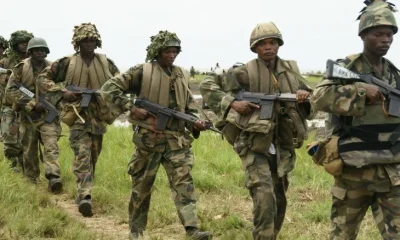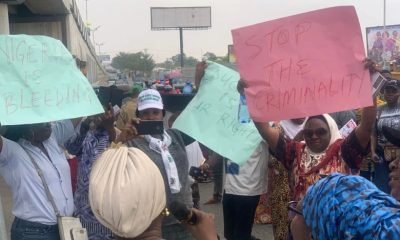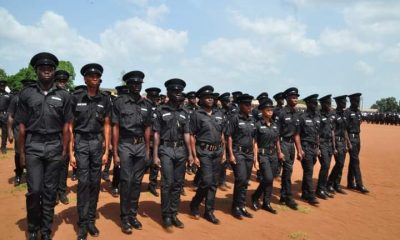News
Insecurity: JBOD Coordinator Seeks Greater Synergy Among Security Agencies
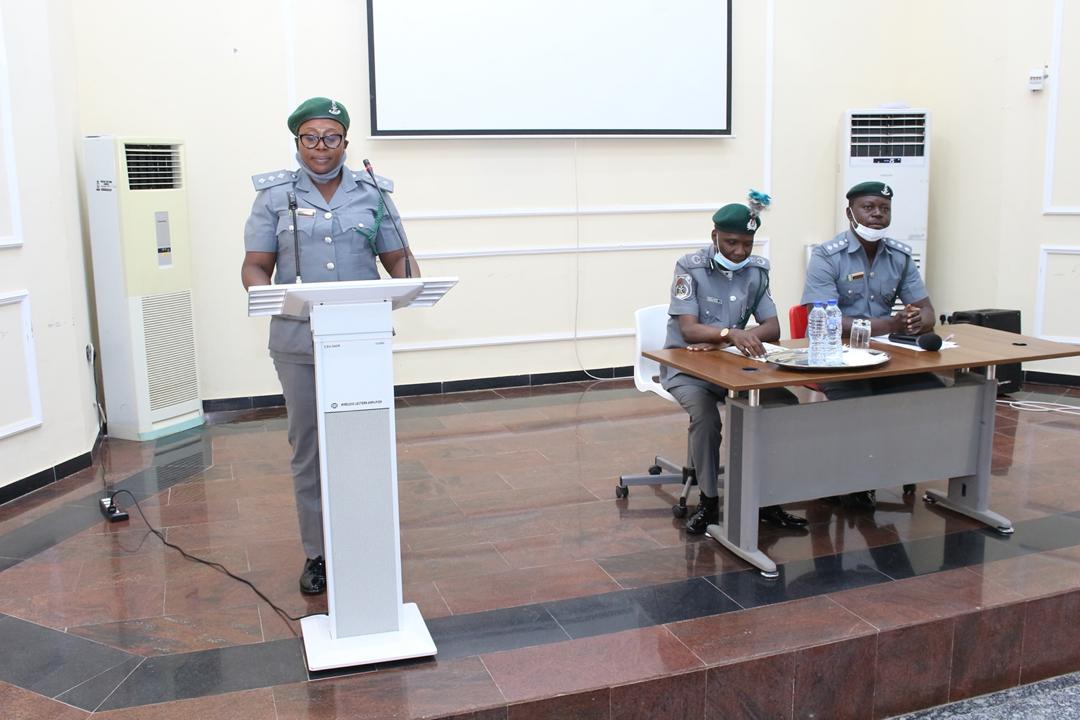
By Steve Oni, Ilorin
The Coordinator, North Central Joint Border Operations Drill (JBOD), Comptroller Mohammed Uba Garba, has stressed the need for further enhancement of collaboration and effective sharing of intelligence among security agencies, especially those operating at the border areas, so as to engender the much desired peace and stability in Nigeria.
Speaking at the Customs Regional College, Gwagwalada, Abuja, on Interagency Collaboration and National Security, Comptroller Garba, who noted that collaboration is very crucial to national security, applauded the Customs High Command for actively being part of One Stop Border Post (OSBP).
According to him, Nigeria had witnessed multifarious security challenges emanating from her internal political environment, lamenting that the country had been under siege for some years largely due to militancy, banditry and other acts of terrorism perpetrated by some individuals against the state.
The most serious security challenges
witnessed in the country, especially between 2001 and 2018, Comptroller Garba said, included the Niger Delta crises, the tedious path to restoration of democratic rule on May 29, 1999 which signaled the emergence and continued proliferation of vigilante groups, ethnic and sectional militia groups, as well as secessionist or separatist groups wielding all sorts of arms and weapons.
Kidnapping, he noted, has remained
a huge security concern in the country, lamenting that a crisis which began in the creeks of the Niger Delta region has gradually engulfed other parts of the country.
He said: “Initially, it was the kidnapping of expatriates that was predominant in the South South region, but today, the situation has gotten so bad that nobody is spared. Serving government officials are not spared in the kidnapping menace, as their family members, relatives and friends have become worthy targets.
“Boko-Haram insurgency, masterminded by the militant Islamist group, has destabilised the North East region of Nigeria. Since 2009, the group had killed tens of thousands of people and displaced millions. About 2.5 million people fled their homes and towns, and the direct consequence of the conflict was that the North East region was plunged into a severe humanitarian crisis because as of 2018, about 7.7 million people were in need of humanitarian aid.
“Farmers-herders clashes, particularly in
the Middle Belt region, have continued unabated. The region and other areas are faced with prolonged violent clashes between the predominantly Christian farmers and the mostly Muslim cattle herders resulting in casualties and destruction of farmlands. In 2018 alone, more than 2,000 people were killed in such clashes.
“Armed Robbery is another serious security threat that is plaguing the country. Only recently, a new trend of robbery which was quite different in outlook occurred at Offa, Kwara State and Isanlu, Kogi State which led to the killing of many police officers and private security personnel. Incidences of armed robbery have become daily routine in many parts of the country. Apart from public institutions such as banks that are their major targets, major highways across the country are not spared as commuters are routinely attacked and dispossessed of their valuables.”
Comptroller Garba lamented that insecurity has badly affected and taken a bad toll on the country’s economy, resulting in drastic reduction in foreign direct investments, adding that hundreds of billions of naira spent on security are humongous sums that should have been spent on other sectors such as education and health where peace and stability reign supreme.
Major challenges facing interagency collaboration, he noted, include differences in structures of the security agencies, lack of knowledge by officers of the processes and cultures of the agencies which they are to collaborate with, feeling of superiority by a security agency over and above the other, resulting in envy and jealousy, acts of indiscipline arising from a false sense of superiority, as well as unhealthy rank comparisons among security agencies, poor or lack of inter service communication required to ensure prompt command control and retreat, uncontrolled and inordinate use of force by security operatives at the slightest provocation.
As a way forward, Comptroller Garba said government needs to put in place strategic directions to avoid unnecessary confusion among the agencies. Besides, he wanted the government to clearly define participating agencies’ roles and responsibilities in the
collaboration to avoid unnecessary conflicts.
Other strategies he suggested are joint training and retraining during interagency collaboration, improved welfare package to boost the morale of security personnel, clear and well defined communication links between the different hierarchies of the services, including the establishment of liaison officers in all the barracks and units at all levels of command to entertain complaints from aggrieved personnel of
other services, and mutual respect for one another with the belief that all services are performing different
functions towards achieving a common national goal.
-

 Education4 days ago
Education4 days ago150 CHEW & JCHEW Graduates of OSCO-HEALTH, Ilesa Inducted into Nigeria’s Community Health Practitioners Board
-

 News4 days ago
News4 days agoCourt Dismisses Suit Challenging Appointment Of Alawo Of Awo, Awards ₦1m Costs
-
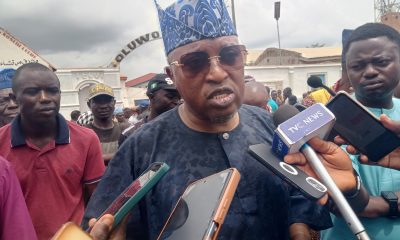
 News5 days ago
News5 days agoWoro Massacre: Oluwo Reacts To Low Sympathy, Cautions Tinubu Against Trump’s Intervention
-

 News4 days ago
News4 days agoBomb Explosion Rocks Bayelsa Secretariat



